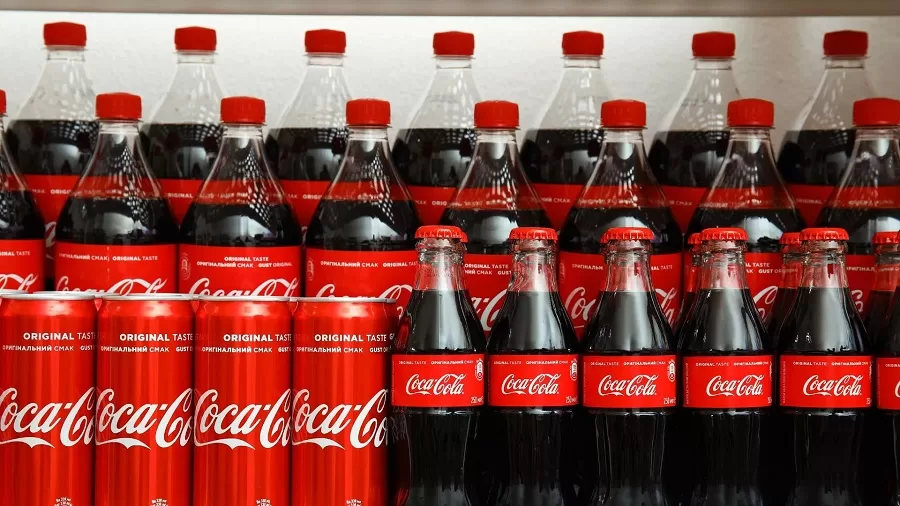Science & Environment
Coca-Cola Faces Backlash Over Scaled-Back Packaging Sustainability Goals

- Coca-Cola has revised its target for recycled materials, lowering the goal to 35-40% by 2035, down from the previous 50% target by 2030.
- The company now aims to collect 70–75% of its bottles and cans annually, falling short of its 2018 pledge to recycle an amount equal to all of its production by 2030.
- Environmental groups have accused Coca-Cola of “greenwashing” and called for greater accountability, as the company has been the world’s largest plastic polluter for six consecutive years.
Coca-Cola‘s recent decision to scale back its packaging sustainability goals has sparked considerable backlash from environmentalists, consumers, and global organizations. Frequently criticised as a major contributor to plastic pollution, the company has significantly lowered its voluntary environmental targets. The revised plan now aims to incorporate 35% to 40% recycled materials into its packaging by 2035, a significant reduction from the previous target of 50% by 2030. This change raises concerns about Coca-Cola’s commitment to addressing the ongoing plastic pollution crisis.
Setting New Goals in the Face of Obstacles
In a recent news release, Coca-Cola explained that its revised sustainability targets reflect decades of progress, regular evaluations, and the identification of challenges. Bea Perez, the company’s executive vice president of sustainability and strategic partnerships, emphasised, “We remain committed to building long-term business resilience and earning our social license to operate through our evolved voluntary environmental goals.”
The company also updated its 2018 recycling commitment. Originally, it aimed to recycle the equivalent of every bottle it produced by 2030. Coca-Cola has now revised this goal to focus on collecting 70% to 75% of bottles and cans annually, without setting a specific deadline.
Environmental Groups React
Environmental groups have swiftly condemned Coca-Cola’s revised sustainability targets. Oceana, an international advocacy organisation, labelled the move as “shortsighted, irresponsible” and “worthy of widespread condemnation by its customers, employees, investors, and governments worried about the impact of plastics on our oceans and health.” Matt Littlejohn, Oceana’s senior vice president of strategic initiatives, argued that the changes would not reduce the company’s overall plastic usage and called on investors and governments to hold Coca-Cola accountable.
Similarly, the nonprofit organisation Break Free from Plastic accused the company of “greenwashing,” stating that Coca-Cola’s decision to abandon previously set reuse targets and increase plastic production undermines efforts to tackle plastic pollution. The group criticised the company for continuing to flood the planet with plastic that it cannot effectively collect and recycle.
Plastic Pollution Crisis
Plastic pollution from single-use products remains a global crisis, with companies continuing to produce record volumes despite sustainability claims. The Minderoo Foundation highlights that most plastic is made from fossil fuel-based polymers, which contribute significantly to environmental degradation and climate change.
For the sixth consecutive year, Break Free from Plastic has named Coca-Cola the world’s leading plastic polluter. In its 2023 survey of 40 countries, the organisation found 33,830 Coca-Cola-related plastic waste items, often discarded in public areas like parks and beaches.
Small Steps Towards Progress
While Coca-Cola has reduced its sustainability targets, the company has made some strides in reducing plastic use. Earlier this year, Coca-Cola introduced new 100% recyclable plastic bottles for all of its soda varieties in the United States. The company estimates that this initiative will save 83 million pounds of plastic annually, equivalent to two billion bottles.
Call for Accountability
As Coca-Cola revises its sustainability goals, calls for greater accountability grow louder. Environmental activists and organisations are demanding stronger actions and collaboration to tackle the escalating plastic pollution crisis. Consumers, investors, and governments will likely continue to monitor the company’s efforts to ensure genuine progress toward a sustainable future.
In a time when sustainability is essential, Coca-Cola’s revised targets highlight the challenges of balancing economic priorities with environmental obligations. It remains uncertain whether these changes will make a tangible impact or invite further criticism.



















































